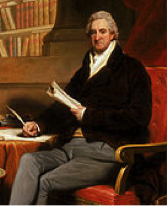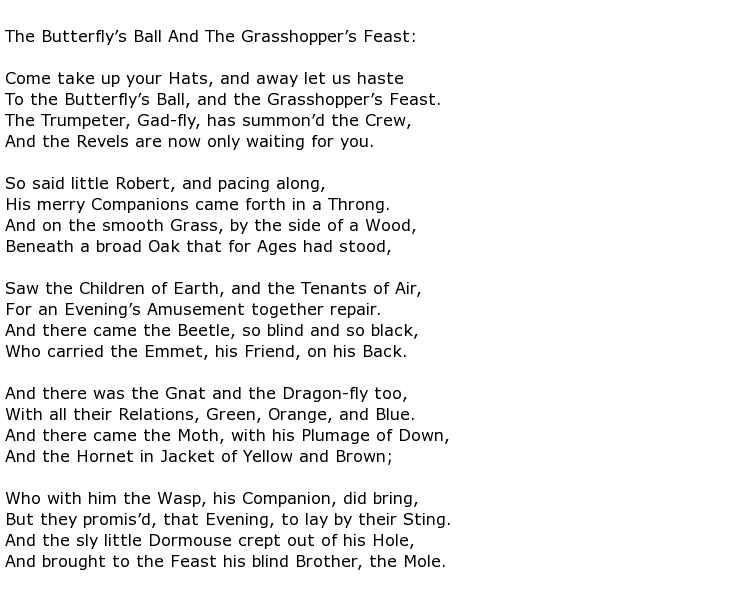 William Roscoe was an English poet whose most famous piece of work was a children’s poem called The Butterfly’s Ball, and the Grasshopper’s Feast. He had strong religious beliefs, as a Unitarian and Presbyterian, and he was a leading campaigner for the abolition of slavery. He spoke out vehemently against this trade even though his home town prospered on it. At different times he was a banker, a lawyer and he served as a Member of Parliament for a short time.
William Roscoe was an English poet whose most famous piece of work was a children’s poem called The Butterfly’s Ball, and the Grasshopper’s Feast. He had strong religious beliefs, as a Unitarian and Presbyterian, and he was a leading campaigner for the abolition of slavery. He spoke out vehemently against this trade even though his home town prospered on it. At different times he was a banker, a lawyer and he served as a Member of Parliament for a short time.
He was born on the 8th March 1753 in Liverpool, the son of an inn keeper and market gardener. He only attended school up to the age of 12 when he left to help his father in the gardening business. He wrote later of this as a pleasant experience. He said that:

Despite his physical endeavours he carried on studying and reading the classics, the latter giving him a love of Italy and its language. At the age of 16 he was working for a solicitor and, five years later, was in business as a fully qualified lawyer. He put a lot of effort into denouncing the trading of slaves from Africa and the public soon began to associate Presbyterianism with abolitionism. Throughout his 40s and 50s Roscoe turned from the law to banking and agriculture and was the elected MP for Liverpool for one year, in 1806, during which he helped to get the bill through that abolished slavery.
In the following years though he struggled financially, principally due to the collapse of the bank with which he was associated. He avoided imprisonment and was much aided by friends and associates who ensured that he would not go under. His writing was a great source of joy and he became a well-respected historian, producing books on significant historical figures such as Pope Leo X and Lorenzo de’ Medici.
His poetry has, to some extent, been almost overlooked by the literary world but he did produce some significant pieces of work. Mount Pleasant, for example, was written when he was a young man of 19 and reflects the enthusiasm that he had for working in his father’s gardening business, which was located in a part of Liverpool that bears the poem’s name.
On a much more serious theme he wrote a long polemical poem called The Wrongs of Africa which was a direct attack on those in his home city who made their fortunes from the trading of African slaves, selling lives across the ocean to the plantations in the new world. But contrast this with a charming poem aimed at children about an imaginary social coming together of diverse members of the small animal and insect world, who all descend on one place in peace and harmony. Here are the opening verses of

Perhaps this was Roscoe’s allegorical view of society all coming together in peace and equality. It is clear that he led a full and interesting life even though his troubles with the bank almost led to financial ruin. His marriage produced ten children in all – seven sons and three daughters – all of whom grew up to have successful careers in arts and literature, sciences and the world of academia.
William Roscoe died on the 30th June 1831 at the age of 78.

